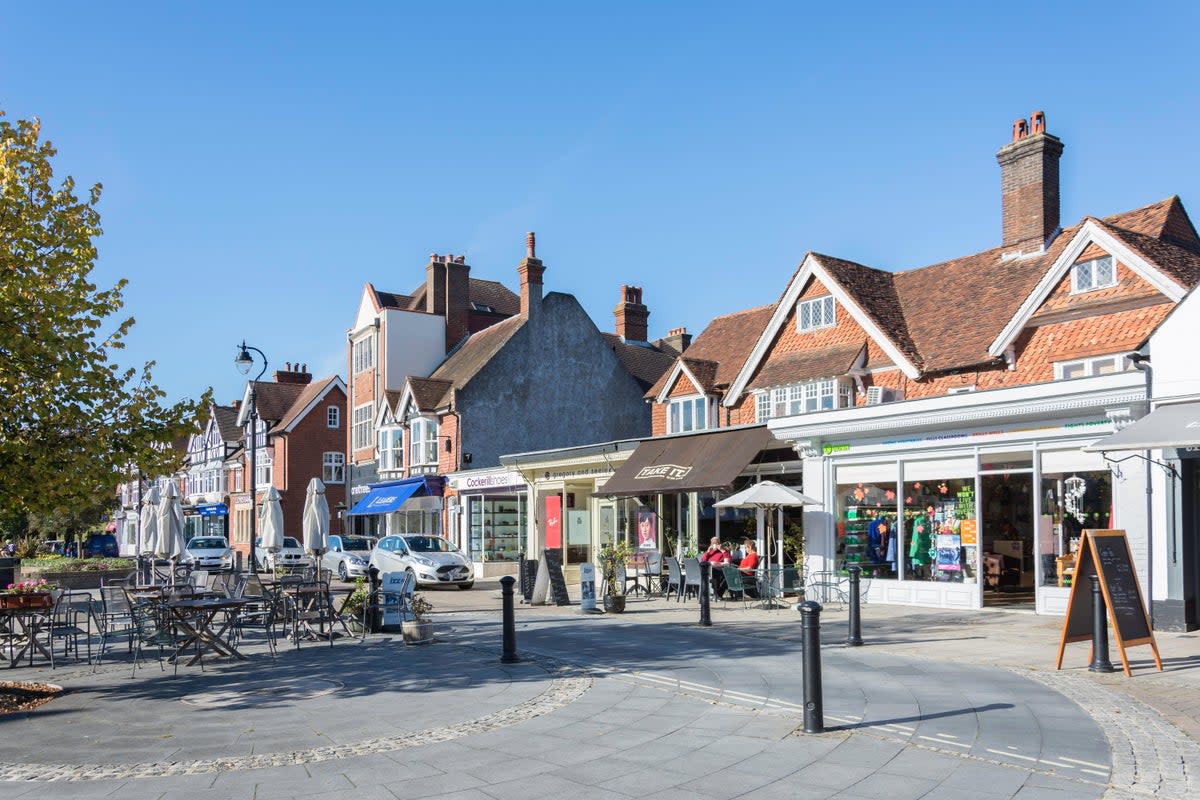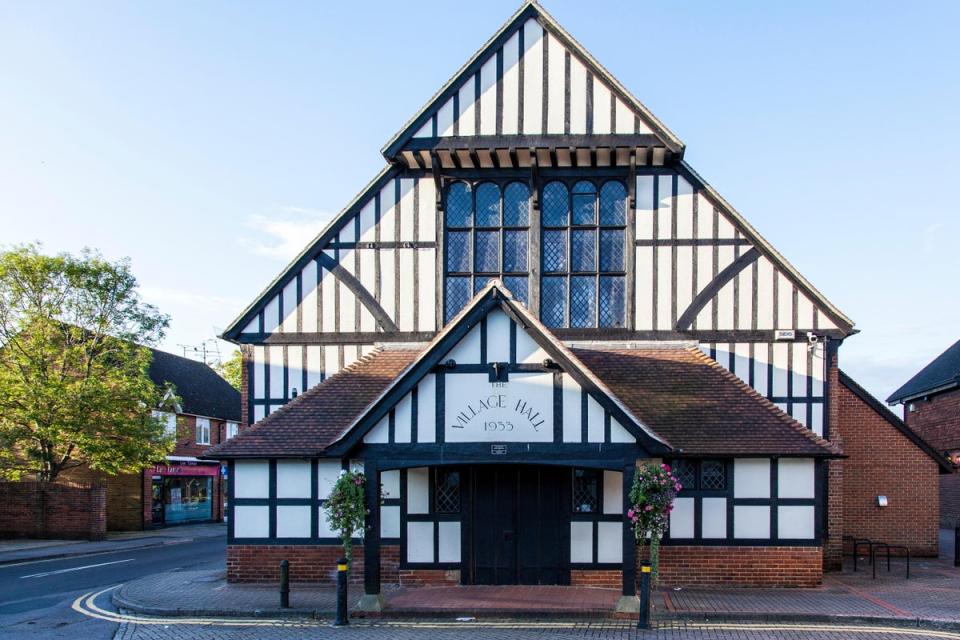Why one of Britain’s wealthiest villages has netted a £300k taxpayer-funded levelling-up grant

It’s a charming village at the foot of the Surrey Hills featuring a quaint high street with many independent cafes and shops.
Surrounded by beautiful countryside and a short journey from Guildford railway station with links into London, Cranleigh is unsurprisingly a sought-after location for commuters working in the capital.
There is a good private school – Cranleigh School – and a vibrant community with well-run clubs offering everything from ballet to choral singing. There’s even an M&S.
Demand to reside in the village, said to be the largest in England, saw the average detached home fetch £843k last year.
And so it might have raised a few eyebrows when the community was awarded a £307k taxpayer-funded levelling-up grant for improvements to its 1933-built village hall.
The successful bid from Cranleigh Parish Council was under the Community Ownership Fund, set up to “empower communities in left-behind places to level up”, according to one of its four objectives.
The fund was also introduced to provide cash to help save key assets such as village halls and pubs, and to strengthen communities through thriving facilities.
In Cranleigh, the parish council said it needs the money to update the existing layout of the village hall, which it says is designed for “an era of tea dances and large assemblies”. The council was eligible to apply.

On winning the bid, among those first to congratulate the council was chancellor Jeremy Hunt.
On Instagram, he wrote: “Brilliant to learn from Angela Richardson (MP for Guildford) that £307,754 has been awarded to Cranleigh Village Hall from the Community Ownership Fund scheme, through the Department for Levelling Up. Great news for Cranleigh!”
Ms Richardson, who is standing for the Guildford seat again at the 4 July election, had submitted a letter in support of the application, claiming the village “deserves a vibrant, modern venue at the centre of its social life”.
On 4 July, Cranleigh itself moves to a new electoral area – the Godalming and Ash constituency being contested by Mr Hunt.
Under the £150m Community Ownership Fund, which was launched in 2021, underrepresented communities and areas of low social infrastructure can be prioritised for help in applying for the money.
The latest index of multiple deprivation score for the areas is used as part of a decision on providing the “targeted support”, according to guidelines.
The data shows that the local authority Cranleigh sits within, Waverley, is the 313st least deprived out of 317 in England, while the wards of Cranleigh East, Cranleigh West and Shamley Green and Cranleigh North are among the most affluent in Surrey.
To back up the area’s wealth, in a list of Britain’s richest villages published by The Daily Telegraph in 2011, the last one to be compiled, Cranleigh came a respectable 36th.
Under the fund, which has so far seen £103m given to 333 projects in the UK, applications are also checked on their business plan and then scored on the impact of the project, how they can be run sustainably and on local support.
A shortlist of bids is then sent to the secretary of state for levelling up, housing and communities, who chooses the winners based on a spread of locations across the UK, and between rural and urban areas.
Projects are also picked to ensure a “reasonable thematic split” of facilities supported, and a balance of applicant organisation types and funding amounts.
Thomas Pope, deputy chief economist at The Institute for Government, told The Independent : “There are legitimate reasons why a fund might spend money in more affluent areas if bids are especially compelling, so I would want to look at the overall distribution of funding rather than just picking out specific project.”
But he added: “There is always a risk that money goes to places that can pull together good bids, and that these might not be the most worthy projects, but that is hard to guard against and another reason why competitive bidding is not a good approach to allocating funding.”
The think tank issued a paper in May calling for an end to competitive bidding for local growth funding, claiming it is expensive and time consuming for groups, while not ensuring a fair spread of cash.
In Cranleigh, where there is already an arts centre and a theatre, the parish council agreed in February to stump up £77k funding toward the project as part of a requirement to provide 20 per cent matched funding of the successful bid.
Parish council chair Marc Scully told a meeting in March that work had begun on planning the improvement scheme for the hall.
The village’s funding has not been met by surprise elsewhere in the country, where applications under the scheme have been unsuccessful.
In rural west Devon, councillors in Hatherleigh were left disappointed when their bid for £1m under the Community Ownership Fund to purchase a site for the reopening of the town’s ancient market was turned down.
Instead, they will rent the space from a developer ahead of the opening in the summer.
While councillor Richard Burrow was keen to point out that the application was dismissed over the valuation of the site, he said: “The scheme comes from levelling-up money – we are a rural community, and there is definitely a feeling that we get overlooked for other areas with larger populations. It is disappointing.”
When asked why Cranleigh was successful in its bid, a spokesperson for the Department for Levelling Up, Housing and Communities referred to published guidelines on the decision-making process for applications.


